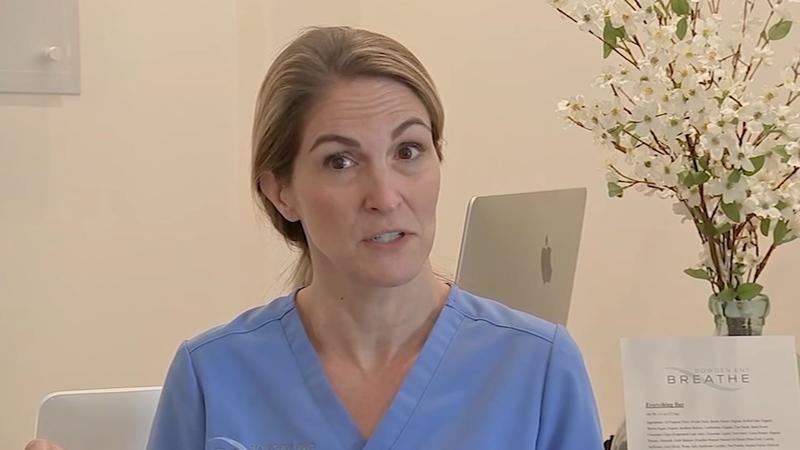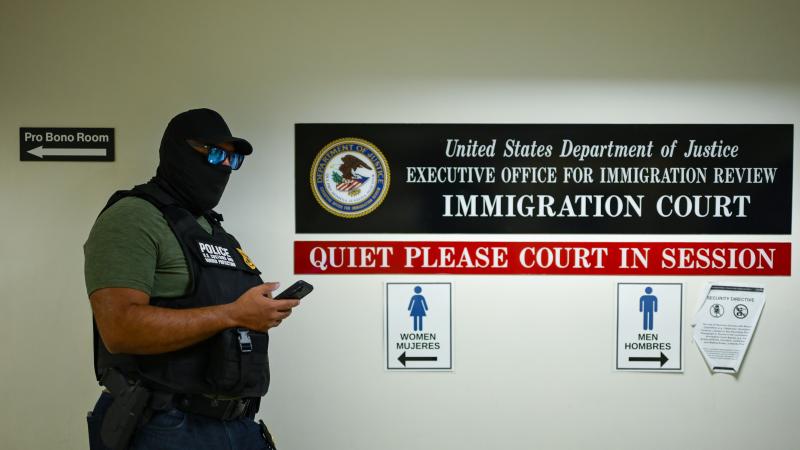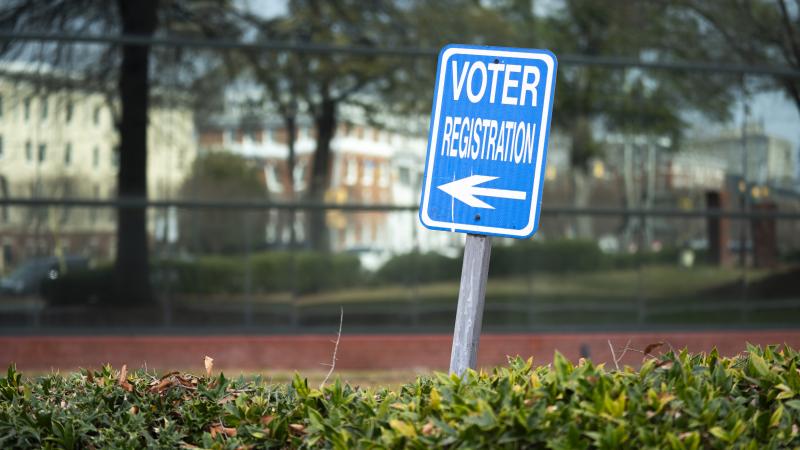U.K. tribunal hides COVID vaccine-death correlation data based on privacy, mental health: activists
Anonymized data shared with pharma will remain hidden from public after two-year legal battle, based on hidden evidence of "triangulating" the deceased's identities and assumption their relatives could be severely harassed, according to complainants.
Nearly five years after COVID-19 vaccines were approved under emergency use authorization, governments aren't making it any easier to resolve ongoing scientific debates about the positive and negative effects of the treatments.
A U.K. tribunal upheld the refusal of the Information Commissioner's Office to force the U.K. Health Security Agency to turn over anonymized records that could shed light on claims of excess deaths correlated with vaccines, after a two-year legal battle.
The tribunal allegedly credited two of the three rationales UKHSA put forth: The data could seriously harm the mental health of surviving relatives and that it would take 76 years to ensure the data could not be cross-referenced with other data to identify the deceased.
The latter rationale mirrors the one unsuccessfully invoked by the U.S. Food and Drug Administration when it sought a 55-year release schedule for documentation on its approval of Pfizer's COVID vaccine in a Freedom of Information Act lawsuit.
While The Telegraph reported Saturday on the tribunal's decision, the U.K. newspaper did not quote from or date the ruling. Writer Camilla Turner didn't answer X and email queries for a copy of the ruling, whose contents have only been described by the complainants she quoted.
ICO news manager Alice Christie told Just the News "there's a slight lag between when we issue it and when we publish it, just because of the volume of publication." A spokesperson for UKHSA gave the same comment to Just the News it gave The Telegraph, praising the tribunal's ruling, but didn't provide the decision when asked.
The publication delay has given a leg up to the campaigners behind the complaints to characterize what the tribunal said, fault its reasoning and cast aspersions on the integrity of the proceeding, which allegedly used evidence they weren't allowed to see.
"My advice is that there is no realistic cost-efficient prospect of obtaining this data through further legal appeals," diagnostic pathologist Clare Craig, who filed the second of two nearly identical requests, told financial supporters of the campaign Nov. 1 following the decision. (ICO's June and August 2024 decisions siding with UKHSA are similar.)
"We brought the case in good faith, we followed the process, and we reached the end of this particular legal road," said Craig, co-chair of the nonprofit Health Advisory and Recovery Team, who was briefly deplatformed by Twitter before Elon Musk's purchase and has criticized an alleged U.S. double standard on counting deaths from COVID versus vaccines.
"Covid vaccine manufacturers have been given vaccine/ mortality data which might – or might not – show correlation between Covid vaccines and excess mortality," Molly Kingsley of UsForThem, which filed the first complaint, wrote on X. When the group challenged UKHSA's basis for withholding the data, causing relatives "painful reminders" of loved ones' deaths, UKHSA ramped up the perceived threat to "endangering mental health" – causing a "psychological disorder" or worsening mental illness.
The tribunal accepted a senior official's claim that "he was concerned that some family members might suffer PTSD if the dataset were published," Kingsley marveled.
"Why on earth would they think not releasing data is somehow protecting my mental health?" widow Charlotte Wright, whose husband died 10 days after his first AstraZeneca dose, told Kingsley. "It's been nearly 5 years and I haven't yet grasped the concept that my husband is never coming home ... all because of this jab taking his life."
"UKHSA says best not to know the truth, in case it may upset us," Reform Party Deputy Leader Richard Tice wrote on X.
He committed the minority party to a public review of excess deaths and vaccination last year and told The Telegraph the "Health Secretary must overrule" UKHSA and its "scandalous cover-up of how and why people are dying."
Can identify by 'triangulating with press reports or social media posts'?
ICO's decisions prior to the tribunal's review upheld UKHSA's reliance on section 38 of the U.K. Freedom of Information Act, which shields information that "could endanger the physical or mental health and safety of an individual."
Regarding deceased people ages 20 and up who had been removed from the National Health Service Immunisation Management Service database since December 2020, both requests sought only their NIMS-recorded 10-year "age cohort" – not exact ages – at their first COVID vaccine dose, the date of each dose and date of death.
"I asked for the bare minimum … proposed adding or subtracting one to three days at random from each date" and left out younger age groups because they "have fewer deaths per week so it might have been easier to identify someone," pathologist Craig said in her Nov. 1 update, which she posted and read from on Substack six days later and again on X Sunday.
"Remember that this data was shared with the pharmaceutical companies from the outset for their safety reporting," yet UKHSA's ongoing response has been "the public would not be capable of analysing and understanding the information" if given them, she said.
Craig called herself "naively optimistic" when ICO initially agreed with her that releasing anonymized data would not force UKHSA to create new data, then ICO "did a 180" and invoked Section 38 and the threat of misinformation if the data were released.
The ICO response letter to UsForThem mentions UKHSA's fear of misinformation resulting from the release of data but only relies on Section 38 to withhold it, while its response to Craig says the Section 38 exemption is "engaged" when combined with the potential harm that misinformation could cause to public health.
The tribunal junked the misinformation rationale for lack of evidence but upheld the health and safety basis, according to Craig, quoting from the ruling that there's a "real risk that some people would be contacted about a deceased relative once the data set was published" and that "would be distressing," up to the level of causing PTSD.
According to Craig, the tribunal said Section 38 allows a "potential adverse psychological reaction" in a single person to deny release of a whole dataset, and credited the UKHSA's 76-year estimate for going through the data line by line "to ensure no individuals could be identified by triangulating with press reports or social media posts."
The evidence for such re-identification was submitted under the "closed material rule," which deprived Craig's counsel from seeing or challenging it, she said. The Office for National Statistics purportedly showed the tribunal how to identify a deceased person in anonymous data, which Craig called farfetched if ONS was really using the "ten year groupings" she sought.
Flood the unvaccinated sample with older drugs
Governments' refusal to share their granular data makes it more difficult to referee between conflicting papers on COVID vaccines, such as how they affect cancer patients.
A widely reported Nature study last month claimed that mRNA COVID vaccines "sensitize tumours" to "immune checkpoint inhibitors" and that vaccination "within 100 days of initiating ICI is associated with significantly improved median and three-year overall survival in multiple large retrospective cohorts."
While they found recently vaccinated lung cancer patients on ICIs lived 16 months longer on average than others on ICIs, the M.D. Anderson Cancer Center researchers included patients going back to 2015, in the early days of ICIs, which is a huge confounding factor, former New York Times drug industry reporter Alex Berenson said.
The gap "barely reached a statistical advantage in pandemic-era lung cancer patients" and disappeared entirely for "pandemic-era melanoma patients," suggesting improvements in ICI treatments in recent years might explain the survival gap, even before considering "healthy vaccinee bias," Berenson said.
A massive South Korean study published in Biomarker Research a month earlier found the hazard ratios for six kinds of cancers "significantly increased at 1 year post-vaccination," in three kinds of COVID vaccines, compared to unvaccinated controls.
These six cancers are "commonly screened for during doctors’ visits in Korea" and vaccination in the study "begins to cause cancer almost immediately after exposure (faster than is seen even after high-level radiation exposure)," University of Chicago medical professor Adam Cifu wrote in the Sensible Medicine newsletter.
"I do not know what the authors were thinking when submitting these obviously confounded data," said Cifu, who once co-wrote a book with FDA Center for Biologics Evaluation and Research Director Vinay Prasad and recently questioned a New England Journal of Medicine study on the purported benefit of COVID vaccines for veterans.
The Facts Inside Our Reporter's Notebook
Videos
Links
- unsuccessfully invoked by the U.S. Food and Drug Administration
- 55-year release schedule for documentation on its approval
- The Telegraph
- told financial supporters of the campaign Nov. 1
- ICO's June
- August 2024 decisions
- briefly deplatformed by Twitter
- alleged U.S. double standard on counting deaths
- Molly Kingsley of UsForThem
- widow Charlotte Wright
- Reform Party Deputy Leader Richard Tice
- public review of excess deaths and vaccination
- Substack six days later
- again on X Sunday
- Nature study
- Alex Berenson said
- Biomarker Research
- Sensible Medicine newsletter
- recently questioned a New England Journal of Medicine
- purported benefit of COVID vaccines for veterans














